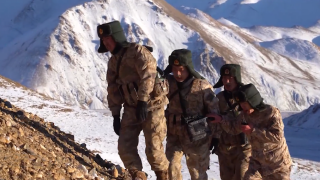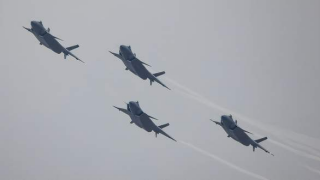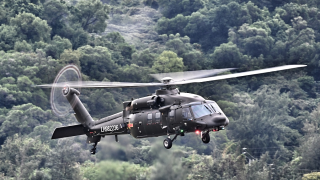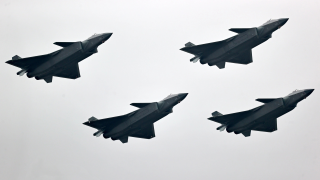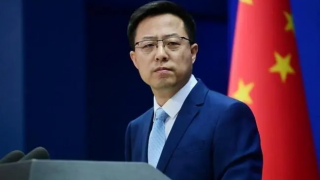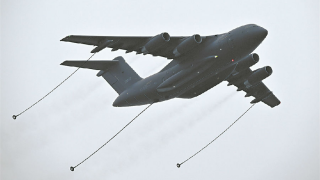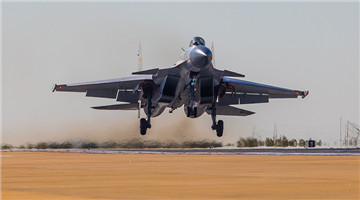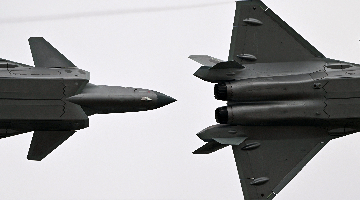By Wang Fengchun and Wei Hongyan
Poland's President Andrzej Duda said not long ago that the deployment of US nuclear weapons in Poland is an open topic, and Poland is negotiating with the US to participate in the nuclear sharing program. Russian Foreign Minister Sergei Lavrov said on October 30 that Poland's request to become a candidate for the deployment of US nuclear weapons in its own territory is particularly worrying. What is the motivation behind Poland's initiative to seek nuclear sharing with the US?
Coping with changes in the geo-environment
Poland has always been a vanguard of the anti-Russian movement within NATO for many years because of historical and cultural reasons. From a geographical point of view, Poland is also a bridgehead for the US and Europe to contain Russia. Poland bluntly treats Russia as the biggest enemy in its new national security strategy. At present, the game between all parties around the conflict between Russia and Ukraine has intensified, and the geopolitical situation in Europe has undergone drastic changes. Against this background, Poland has requested the US to increase deployment of troops many times and further sought nuclear sharing with the US to relieve its own security pressure. At the same time, Poland has actively used a more active posture to threaten the US to assume the obligations and responsibilities of maintaining NATO's common security.
Path dependence on the NATO system
Nuclear sharing is an agreement between the US and NATO during the Cold War. Currently, the US has deployed nuclear bomb storage facilities in six NATO member states including Belgium, Germany, Italy, the Netherlands, Turkey, and the UK, and continues to upgrade and transform them. Poland seeks for the deployment of the US nuclear weapons in its territory to provide a "nuclear umbrella". Once such agreement is reached, the nuclear weapons deployed in Poland will be kept by the US. In the event of a conflict, Poland will provide bases and fighter jets to participate in nuclear deterrence activities. Poland will share intelligence and decision-making with the US on the use of nuclear weapons, including nuclear strike targets and nuclear warhead explosive yields. Earlier, Poland signed a contract with the US to purchase 32 F-35 fighter jets capable of carrying nuclear warheads. The first batch of fighter jets will be officially delivered in 2024. This has provided a material basis for nuclear sharing between the two countries.
In addition, joining the nuclear sharing program is also an important move for Poland to seek a greater discourse right within NATO. Poland has made more frequent military expansion moves in recent years. According to the plan by Poland’s Ministry of National Defense, the size of the Polish army will reach 400,000 people, and the number of tanks will be greatly increased to create the strongest army in Europe. The draft budget 2023 passed by the Polish government on August 30 made it clear that defense expenditure in 2023 will increase significantly from 58 billion zlotys (about 12.28 billion dollars) in 2022 to 97.4 billion zlotys (about 20.62 billion dollars), exceeding three percent of its GDP.
Extremely irresponsible act to welcome nuclear weapons
Poland's initiative to welcome nuclear weapons violates the norms and spirit of the international community on non-proliferation of nuclear weapons and aggravates the hidden dangers of nuclear proliferation. It will undermine regional peace and stability and worsen the security situation in Europe. In the Founding Act on Mutual Relations, Cooperation and Security between NATO and Russia in 1997, NATO made it clear that it had no intention, no plan, and no need to deploy nuclear weapons on the territory of new member countries. Putting one's own security on the nuclear threat is an extremely irresponsible act for the global strategic balance and the common security of mankind, and it will undoubtedly bring huge risks. For this reason, many people in Poland are opposed to it, calling on Poland to refuse the deployment of US nuclear weapons and not to open the door to nuclear weapons.
